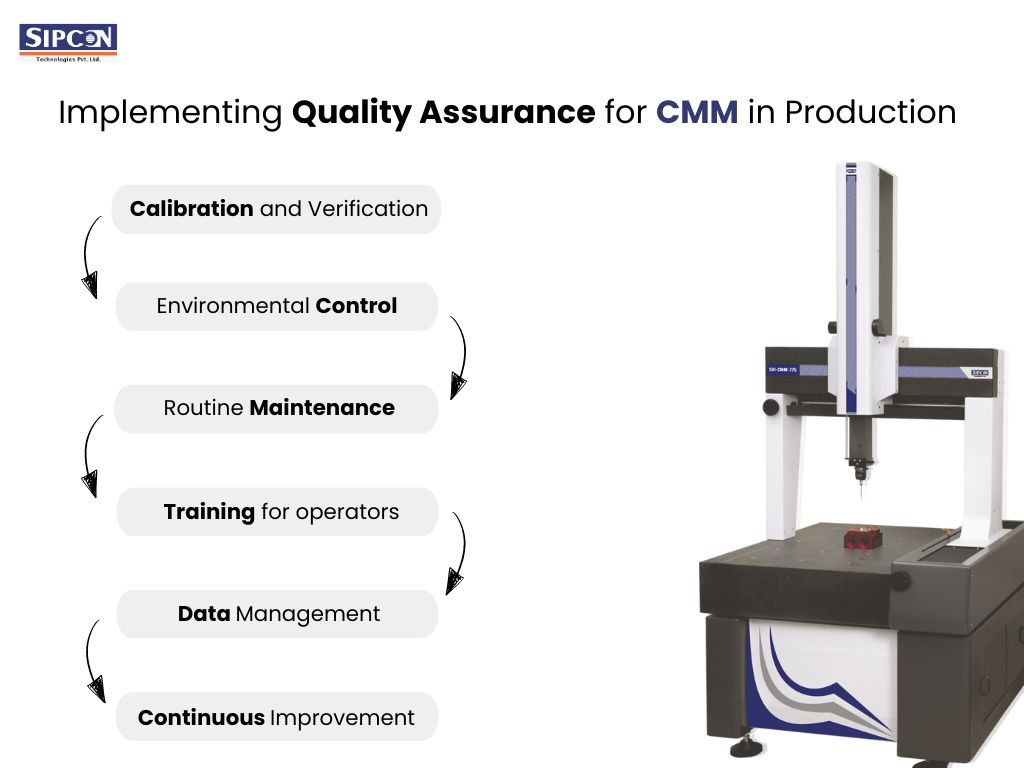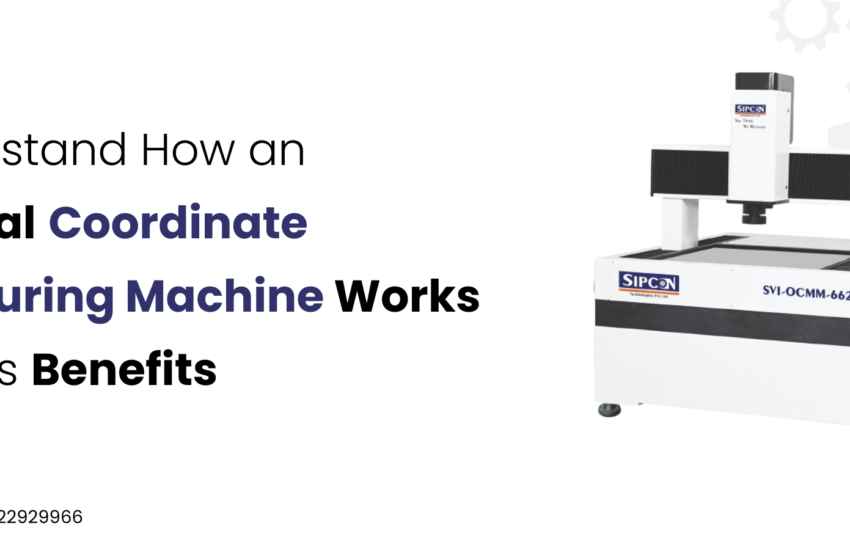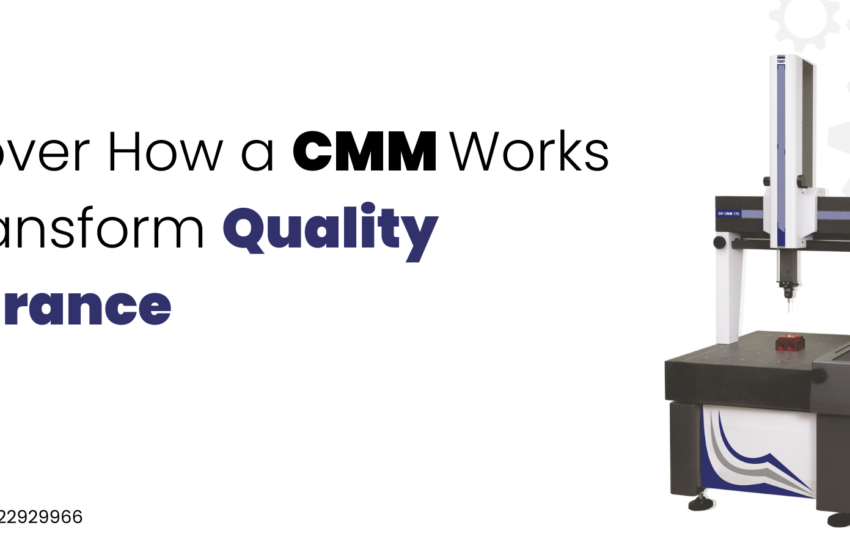Why Quality Assurance for CMM in Production Important
In today’s era, the manufacturing industries are working in a competitive environment, where the quality of products is paramount. To ensure that the quality of the products meets their standard, companies are dependent upon the different quality assurance processes. In many quality processes, CMM (Coordinate Measuring Machines) plays a very important role in the production process. CMMs are measurement instruments that are used in measuring the physical geometrical characteristics of any object. In this blog, you will explore how to implement quality assurance for CMMs in production and ensure that the measurements are accurate and reliable.
Role of CMM in Production
CMMs became a very important part of the manufacturing industry because they provide accurate measurements of components with critical dimensions. Best part of these machines is that they use probes to measure the dimensions of objects in three-dimensional space, to measure the inner views of the part for better quality of manufactured parts. CMMs collect the data which is essential for quality assurance; this will help the manufacturers to detect the defects early, reduce wastage cost, and improve overall efficiency.
The accuracy and reliability of CMMs majorly depend upon the quality assurance processes implemented to manage them. Without proper Quality assurance protocols, even the most advanced CMMs can give false data, which will lead to defective products and costly recalls. It’s important to implement a proper quality assurance system for CMMs for better utilization of machines as well as products.
Various Steps to Implement Quality Assurance for CMM
Calibration and Verification:
- The very first step of quality assurance for CMMs is continuous calibration and verification. With the help of calibration, it will ensure whether CMM is providing accurate measurements or not. Verification ensures that the machine’s reading is consistent over time.
- Calibration must be performed as per the manufacturer’s specifications or industry standards. It involves using traceable calibration artifacts and making sure that the CMM is operating within the specified tolerances.
Environmental Control:
- These machines are highly sensitive and can be affected by various environmental conditions like temperature, humidity, dust, and vibration. It’s essential to look for the environment where the machine is being operated.
- A room where the temperature is being controlled is a good place for the working of the CMM. Changes in temperature can cause expansion or contraction in the measuring part, leading to measurement errors.
Routine Maintenance:
- Regular maintenance plays a very important role in the longevity and accuracy of CMMs. This also includes the cleaning of the machine, checking wear and tear, and ensuring all the components are functioning correctly.
- The Maintenance decision will be taken on the basis of the usage of machine and according to the manufacturer’s needs.
Training for operators:
- The accuracy of the machine and its measurement capabilities not just only depends on the machine but also depends on the performance or skill of the operator. Proper training is a must for the operators for proper utilization of the machine.
- The operators should have training on how to correctly set up and operate the CMM, capable of interpreting the measurement data, and identify potential sources of error.
Data Management:
- The data that is analyzed by the CMMs is very crucial for assurance of quality; such data should be managed properly. Implementing a robust data management system makes it easier to store the measurement data for its easy accessibility in the future.
- Analyzing this data will help in identifying the data trends, It will help in detecting deviations from acceptable standards, and able to take decisions to improve production quality. .
Audit and Continuous Improvement:
- Regular audits are very important for the assurance that the system is functioning the way it should be for betterment. Audits help in identifying the areas where improvement is needed and ensure compliance with the standards.
- The improvement is a very important part of the quality assurance process. It involves regular review of QA procedures and adjustments done as per requirement to improve efficiency and reliability.
Conclusion
Quality assurance is very important for CMMs in production to maintain the accuracy and reliability of the critical measurement tools. A systematic approach that includes calibration, environment control, routine maintenance, operator training, data management, and continuous improvement, will assist the manufacturers in ensuring that precise measurement is delivered by CMMs on a continuous basis. In today’s manufacturing world, quality assurance of CMMs is not just important but essential for strategic advantage.



